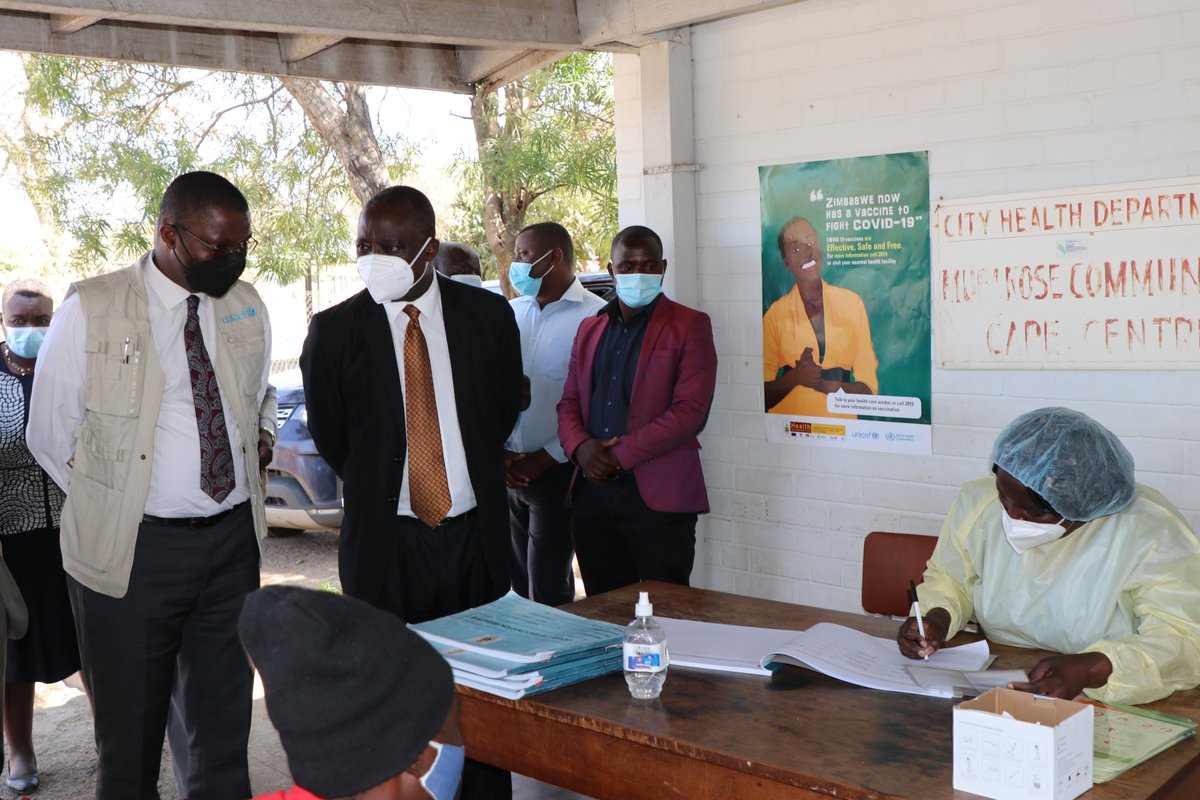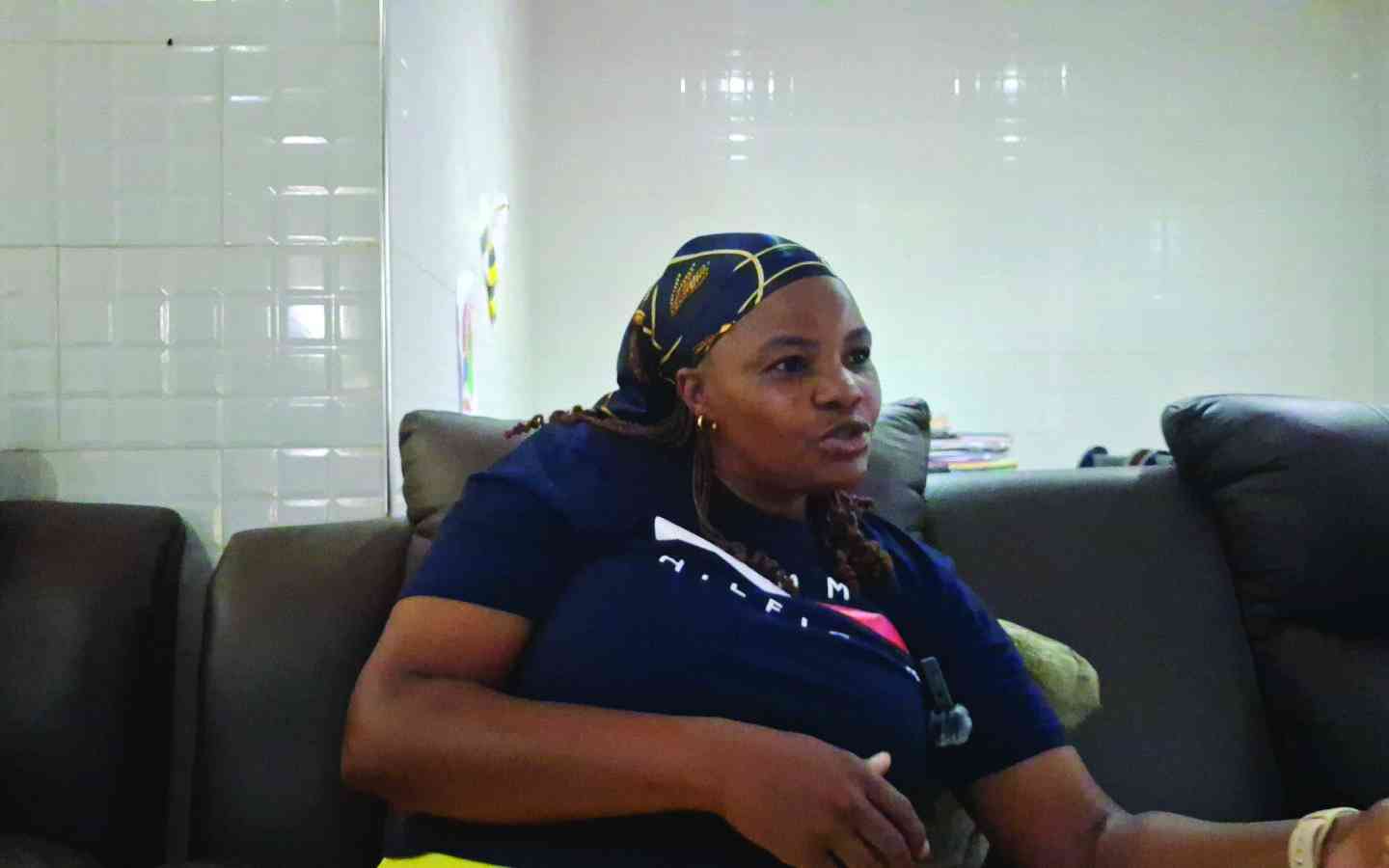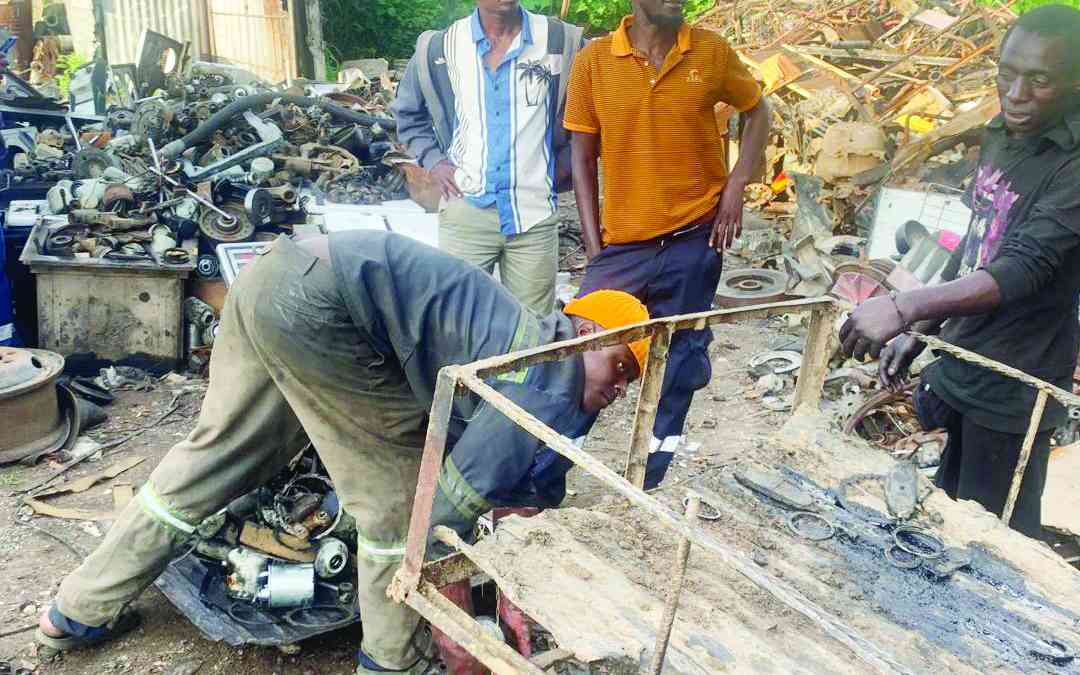
BY JOHN MOKWETSI
Unicef representative in Zimbabwe Tajudeen Oyewale has commended the government of Zimbabwe and partners for the continuity of essential health and nutrition services for women and children, even in the face of the Covid-19 pandemic.
Oyewale was speaking on the side-lines of a recent visit to health facilities in the suburbs of Mufakose and Budiriro in Harare with the Health and Child Care deputy John Mangwiro.
Oyewale said: “It is vital to keep health services like maternal and children health care including immunisation alive for children.
“I am pleased to see an increasing trend in the coverage of routine vaccination for children What is interesting is that from January this year, the data at the two facilities indicate an increase in the routine vaccination for children.
“At Budiriro clinic, for example, the nurse reported vaccinating an average of 150 children on a daily basis.”
This progress is reflective of the concerted efforts by the government and Health Development Fund (HDF) funded by the European delegation, the government of the United Kingdom, Sweden, Ireland and Gavi.
In addition, to support for the Covid-19 response, HDF partners continue to focus on key interventions across maternal and newborn, child health, nutrition, and immunization services, as well as procurement and supply of essential medicines and supplies.
- Chamisa under fire over US$120K donation
- Mavhunga puts DeMbare into Chibuku quarterfinals
- Pension funds bet on Cabora Bassa oilfields
- Councils defy govt fire tender directive
Keep Reading
Recently, the Health and Child Care ministry with support from Gavi, the Vaccine Alliance, Unicef and the World Health Organisation (WHO) launched a new vaccine campaign introducing Typhoid Conjugate Vaccine (TCV) into the routine immunization schedule across the country.
The campaign integrated the TCV with the Inactivated Polio Vaccine (IPV) and the Human Papillomavirus (HPV) vaccination.
In addition, children aged six to 59 months received a Vitamin A supplementation.
“Millions of babies globally are immunized against life threatening diseases such as tuberculosis, measles, pneumonia, hepatitis, diarrhoea and tetanus,” Oyewale said.
“The success of vaccines in reducing morbidity and mortality from diseases makes it one of the central public health and child survival strategies globally.
“The evidence is clear – vaccines work.”
During the visit, the Unicef representative and the deputy minister also explored options for integrated HIV services where in addition to antiretroviral treatment, people living with HIV can also benefit from further medical check-up and referral services.
The Unicef representative had an opportunity to witness first-hand the Covid-19 vaccination programme that has seen more than 1.3 million Zimbabweans fully vaccinated.
“Zimbabwe is ramping up (Covid-19) vaccination aggressively,” Oyewale said.
“The deputy minister and I took time to look at the processes at these clinics to try and see areas where we can have efficiency gains.
“We discussed options on having nurses do the actual vaccination and look for some other clerical staff to help with documentation to save time and reach more people.
“ There is also the possibility of deploying a smart phone application for vaccination enrolment to safe time at the vaccination centres.”
He added that Unicef working with the Health and Child Care ministry and HDF partners support the Covid-19 risk communication and is looking at the opportunities to increase community engagement in the Covid-19 vaccination roll out.
Oyewale also requested Mangwiro to clarify the government’s position on Covid-19 vaccination for pregnant and lactating women to align with the recommendations from the WHO, of which the deputy minister promised to address.
Mangwiro concurred saying the government was grateful for working with Unicef for the wellbeing of the nation.
“Our aim is the same,” he said.
“ A healthy patient, healthy people, healthy children, safe delivery for mothers requires that we work together.
“We are going to continue doing monitoring visits like this routinely with other organisations so that we do not work in silos.”
Mangwiro thanked Oyewale for his commitment for UNICEF to work within the National Development Strategy 1.
“Once we work together, we know that our aim is the same,” he said.
“We are visiting to make sure Covid-19 is managed through vaccination, sanitising, masking up, social distancing and washing of hands.
“For us to have an effective programme we must also take care of our health workers.”










